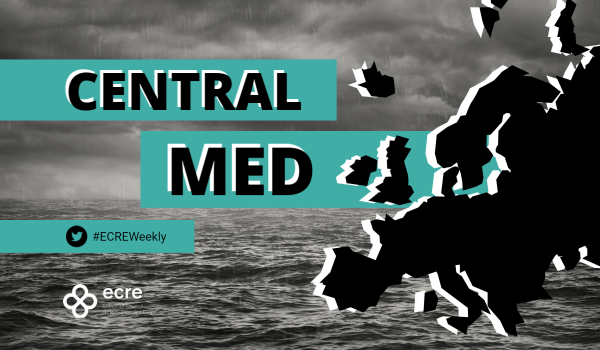Rescue activity ongoing but death toll in the Mediterranean continue to raise. Pope Francis denounced abuse of migrants during his visit to Malta after the country’s refusal to disembark survivors and condemned EU complicity in abuse in Libya. More than 350 returns to Libya in one week bring total number of returns to over 3,450 so far this year. Chaos and conflict in Libya fuels migrant smuggling.
IOM reports 318 dead or missing migrants on the central Mediterranean route in 2022 so far. In March alone, the NGO hotline Alarm Phone reported 131 dead or missing migrants on the central Mediterranean. On 2 April, following their departure from Libya, 90 people drowned after several days at sea in an overcrowded boat, “one of the worst shipwrecks involving migrants in recent years” the UN said. The commercial tanker Alegria 1 rescued the only four survivors that reported being at sea for at least four days. “None of the survivors should be returned to a place where they face detention, abuse and ill-treatment. Libya is not a safe place”, Médecins Sans Frontières (MSF) stated urging disembarkation in Malta or Italy. Two days later MSF confirmed that the four had been returned to Libya. The 113 people rescued on 30 March by the MSF operated vessel Geo Barents are still awaiting disembarkation. Between 29 and 30 March, the German NGO Sea-Eye 4 rescued 106 people, including 22 minors. After Malta denied disembarkation for the 106 survivors, the Sea Eye 4 confirmed that on 5 April the rescued migrants had been finally disembarked in Augusta, Italy.
Malta’s refusal to offer a safe port for disembarkation came just one day before the Pope’s visit to the country. In an open letter to the Pope, a group of migrants in Malta wrote “Some of us are stateless, hopeless and just surviving. What we wish and pray for is just someone to hear our cries, someone to come into reality that we are not here on holiday, nor to destroy anything, rather, we are in need of protection, something which some of us have already given up on”. During his visit, Pope Francis met migrants who crossed the Mediterranean and listened to their testimonies, including the three boys charged with alleged crimes of terrorism in the El Hiblu case. The Pope denounced that the human rights of migrants are being violated, at times with the cooperation of the authorities. “Let us respond to the challenge of migrants and refugees with humanity”, “regarding people not merely as numbers, but for what they really are: brothers and sisters”, he said. He also pointed at Europe’s complicity in human rights abuse and condemned the EU agreements with Libya to return migrants: “The Mediterranean needs co-responsibility on the part of Europe, in order to become a new theatre of solidarity and not the harbinger of a tragic shipwreck of civilization”.
In the period 27 March 2 April, the so-called Libyan coast guard intercepted 362 migrants and returned them to Libya. Four people were found dead. So far in 2022 3,456 migrants have been returned to Libya, including 147 minors. “The withdrawal of the EU and its member states from search and rescue operations in the Mediterranean Sea and their support to the [so-called] Libyan coastguard are at the root of the deaths and violations of human rights occurring in the Central Mediterranean”, said Caroline Willemen, MSF project coordinator on board of the Geo Barents.
On 2 April, an abducted Libyan Red Crescent official was freed after 10 months. Libya seems to want to re-emerge from a decade of chaos and conflict that followed the overthrow of dictator Moamer Kadhafi in a NATO-backed uprising in 2011. In December 2021, the country was meant to hold elections as part of an UN-guided peace process, but the polls were indefinitely postponed amid political disputes over the legality and the eligibility of controversial candidates. Human traffickers profit from this situation of conflict and instability to smuggle migrants into the country, who are then placed on overcrowded boats in the Mediterranean in an attempt to reach European shores.
For further information:
- ECRE, Central Med: Rescues and Death Toll Continue to Rise, Germany to stop training the so-called Libyan Coast Guard, Pope Francis Calls on Malta to Welcome refugees, April 2022
- ECRE, Central Med: Death Toll Continues to Rise on the Busiest Route to Europe, March 2022
This article appeared in the ECRE Weekly Bulletin. You can subscribe to the Weekly Bulletin here.

